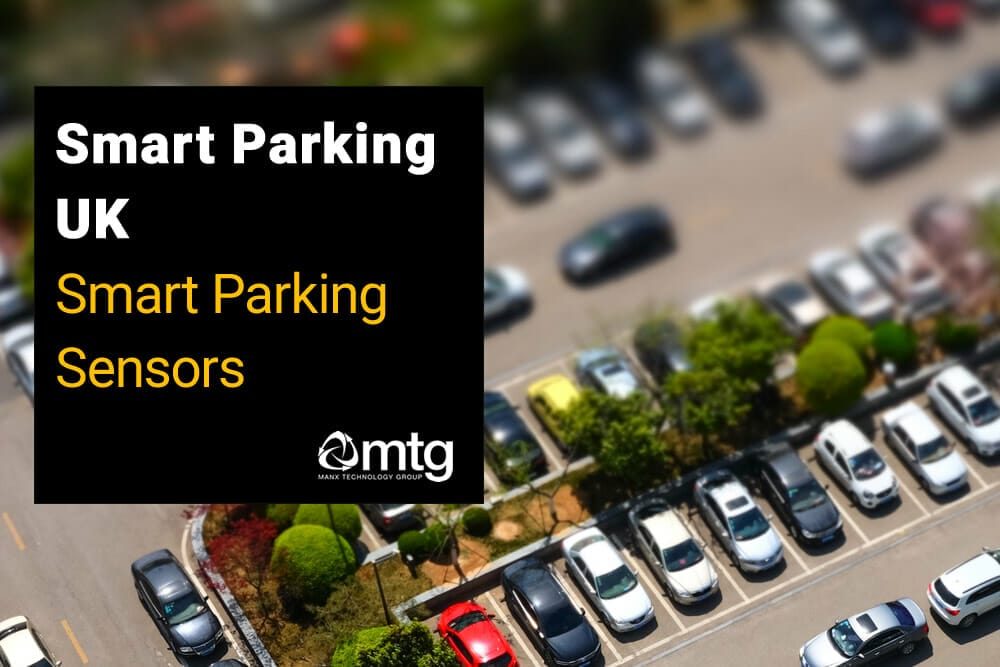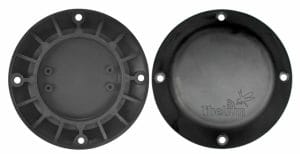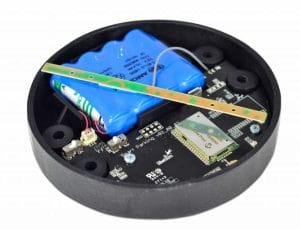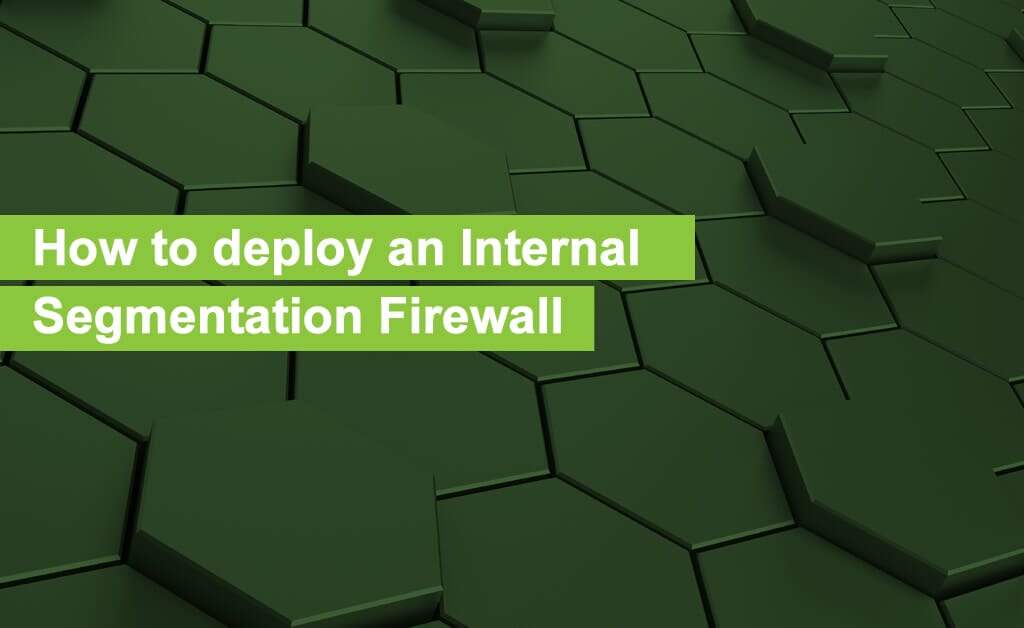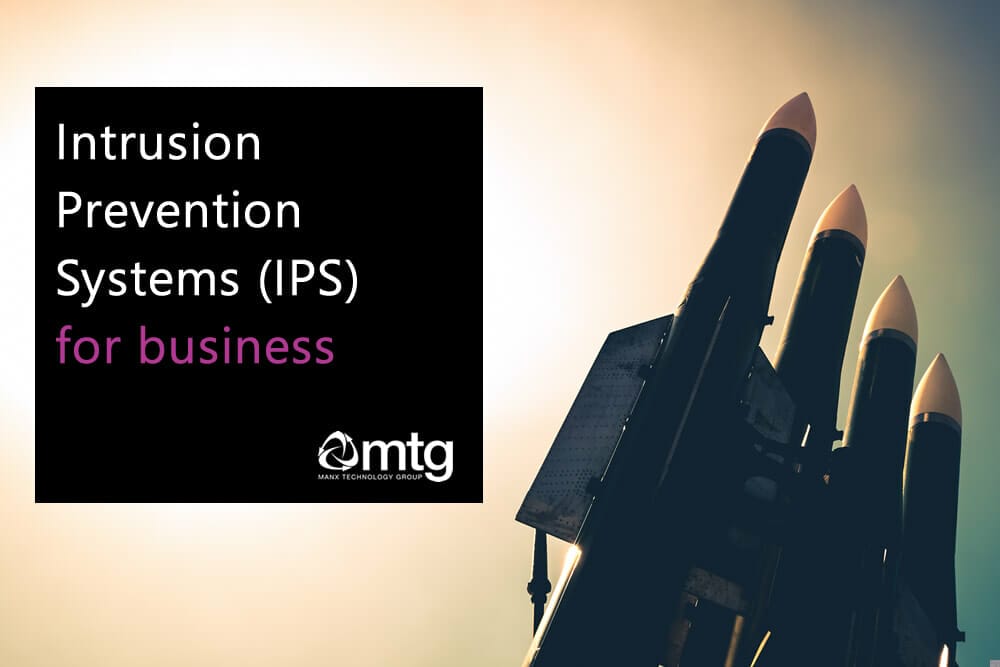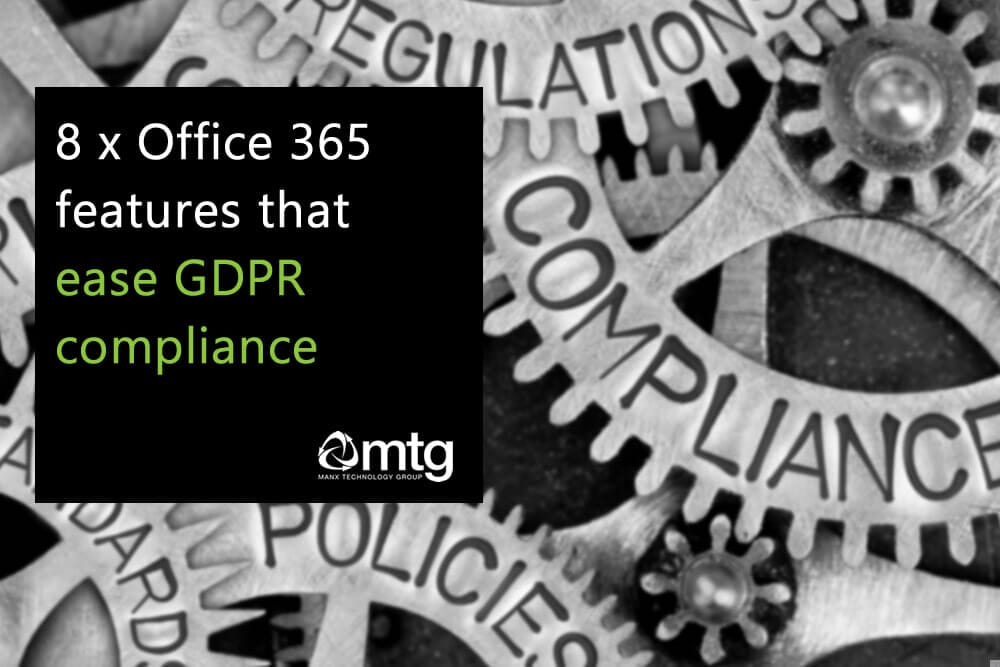Smart Parking sensors are IoT sensors that are installed in parking spaces to detect the presence of a parked vehicle using ultrasonic or radar technology. Smart parking sensors are easy to install, battery-powered and operate wirelessly.
Smart Parking sensors are popular with Smart Cities and offer an intelligent solution for cost-effective enforcement, guided parking apps and analysis of parking in an urban environment.
When the wireless parking sensors detect the presence of a vehicle, the sensors trigger an event, before sending data to a remote application server wirelessly. Data from the nodes is sent using the LoRaWAN radio to a remote gateway (with a range of up to 5-10KM in normal conditions).
The nodes have accurate detection capabilities due to the use of a radar sensor that can accurately detect vehicles positioned above the device.
The following table shows a comparison of different IoT parking sensor types:
| Radar | Infra-red | Magnetism | |
|---|---|---|---|
| Reliability against nearby vehicle movement | Yes | Yes | No |
| Reliability against nearby parked vehicles | Yes | Yes | No |
| Reliability against electromagnetic interferences | Yes | Yes | No |
| Reliability in any lighting scenario | Yes | No | Yes |
| Stability during long-duration vehicle stays | Yes | Yes | No |
| Do not need an aperture in enclosure | Yes | No | Yes |
| Immunity against dirt or dust on enclosure | Yes | No | Yes |
Smart parking sensor setup
The nodes can be configured locally, or for more flexibility – they can be provisioned using OTA (over the air) provisioning. OTA allows the operator to configure node parameters such as sleep-time, keep-alive and night-mode and push the settings remotely.
Network Topology
The sensors utilise LoRaWAN radios and will require access to a LoRaWAN network to operate.
- Once an event is triggered, the nodes send an event wirelessly using LoRaWAN, to a LoRaWAN Gateway.
- The communication between the parking node and the LoRaWAN gateway is secured using encryption.
- Once received by the gateway, the frame is forwarded to a LoRaWAN Network Server (i.e. Things Network, Loriot).
- The Network Server then forwards the data to an application server. Libelium has a product called the Libelium Smart Parking Cloud Service or alternatively, the customer may choose to develop their own.
Smart Parking Sensor Events
When the Smart Parking Node detects the presence of a vehicle or a change in status (i.e. free/occupied), the node sends a frame to the LoRaWAN base station.
Hardware Description
|
|
|
The Node is made up of two main items; the base and the external enclosure. The Base includes the PCB, Battery, antenna and internal enclosure. The dimensions are 200mm diameter and 37.25mm in height.
Radios
The wireless parking sensors are available with LoRaWAN radios suitable for different regions including EU, US, APAC, LATAM, AU and India.
Applications for Smart Parking in the UK
There is a range of applications that can benefit from Smart Parking, including:
- Smart parking for Smart Cities.
- Wireless parking sensors.
- On-street parking.
- Monitoring of disabled parking spaces (see our University College Man case study)
- Monitoring of Electric Vehicle (EV) spaces.
- Loading bays.
- ‘Find parking space’ apps.
- Reserved spaces.
- Car parks.
How much does a smart parking solution cost?
There are four main project elements:
- Smart parking sensors. These range in price from £100 to £200 each. Price is dependent on quantity.
- LoRaWAN network. Gateway pricing ranges from £500 to £1200 depending on model, specification, etc. A single gateway can cover a large area (i.e. 10KM outdoors, 1-2KM indoors).
- Software Platform. Depending on the application (i.e. car park, parking enforcement, guided parking) you have to consider the cost of a parking platform subscription, developing your own platform, or integrating with an existing platform.
- Installation. You should allocate some budget/cost to the installation of the sensors, network and testing.
IoT Parking sensor pricing
IoT parking sensors are typically sold in bundles (i.e. packs of 10) with their entry-level pricing ranging from £100 to £200 each. At higher volumes (i.e. 50, 100, etc) there are discount tiers available. MTG offers bundled pricing that can include sensors and a LoRaWAN gateway for new operators.
Further technical information
For advanced technical information relating to frame payload, configuration parameters, night-mode and other advanced features, please review the Libelium technical guide
More information
If you would like to learn more about Libelium Smart Parking sensors, the possible applications in your Smart City Project or if you have any technical or implementation questions, please speak to our IoT solutions team. They can be reached by e-mailing sales@mtg.im, calling +44 1624 777837 or clicking the ‘Request a Quote’ button on the right of our website.
Further reading:
- Smart Parking: UK Working towards standardisation
- 10 x Benefits of Smart Parking Technology (IoT)
- Libelium – Smart Parking Technical Guide (PDF)
[sc name=”blogfooter” ]

